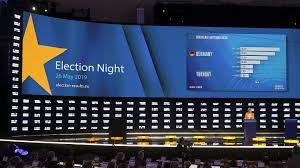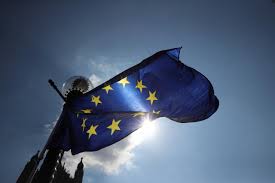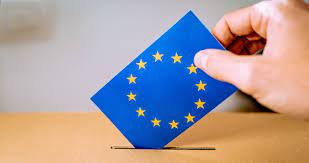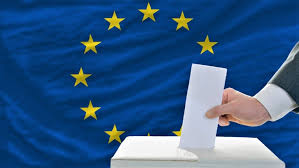Contents
2024 will be a year of vital elections globally. The most important of these elections will perhaps be the American Presidential Elections and European Parliament Elections.If you think that the great weight of world politics lies in these two, you will understand what we mean. Also, if we look at the issue not only politically but also economically, let’s not forget that the vast majority of the world economy is made up of these two. In this regard, we should state that among the more than 40 elections that will take place throughout the year, including major important countries such as Russia, Venezuela and Pakistan, will significantly affect world politics.
As is the subject of our article, the European Parliament elections which will shape the politics and future of Europe, will take place between 6 and 9 June in 2024.

Overview and Significance of the European Elections 2024
In this sense, issues such as the political tendencies of European nations and the rise of the far right will be on the agenda in these elections which will be held for the first time after Brexit. While the long-running war in Ukraine, the Houthis’ missile attacks on commercial ships in the Red Sea and Israel’s attacks on Gaza continue, it is very important globally that such an election year has come around the world. At this point, it will not be surprising that the conflict environment is triggered by populist politicians as all countries such as the USA, England, Europe and Russia have elections this year.
In this context, in our article, while the world is going through one of its most turbulent periods, we will touch upon briefly issues such as the European Parliament (EP) elections which will be held between 6 and 9 June 2024, as well as the EP structure.

We previously talked about EU bodies in our article about the European Union. The most basic and important of these bodies are the European Parliament (EP) and the EU Council. In this context, the EP stands out due to its legislative body and budget approval function.
Development and Elections
In terms of personal development and understanding the world, it is useful to know the basic information and functions of such global institutions and organizations. Otherwise, when everyone is talking about these elections in June 2024, you will be upset if you look left and right without knowing what the issue is 🙂
Key Trends and Major Issues Shaping the Elections

Representing a population of approximately 500 million across Europe, the European Parliament is the legislative body of the union, together with the EU Council. When we say legislative body, the subject may sound a bit technical. Legislative bodies of countries make laws or legislation. For example, when a law needs to be passed in a country, just as this process is the duty of the parliament, under the same conditions, the EP and the EU Council make the legislation or law for the European Union together.
In this context, in addition to its function of approving the budget, the EP also has the authority to represent the people of Europe as a political holistic power. In addition, it is the only institution elected by direct votes of European citizens and has a total of 705 members.
On the other, European Parliament Elections, in which countries are represented as EU Members of Parliament according to their population scale, will be critical in determining the political tendencies of the EU in 2024. At this point, it should not be forgotten that the rise of the far right in the last 2019 elections caused surprise all over the world. Accordingly, considering the immigrant flows and refugee crisis, the rise of the far right will be expected to continue in the 2024 elections. On the other hand, the European Council is in Brussels, the headquarters of the EU.
The European Parliament whose headquarters and general assembly is in Strasbourg, votes on the proposals received from the committees in its general assembly. Important changes require a two-thirds majority of the European Parliament General Assembly.

European Parliament Elections 24
As we have stated before, after Brexit and the UK’s departure from the EU, the number of members of the parliament decreased to 705. All of these MPs come from EU member states. As we can understand from here, the European Parliament (EP) is an EU body. The interesting thing is that while the parliamentary groups of the countries are normally formed according to the parties, the members of the EP are grouped according to their political views. So, for example, if you are a German democrat, you are in the same group and represent the same political community as a Greek democrat.
In this context, there are currently 7 different political groups in the parliament. In addition, there are also independent members.
Although its history goes back further, European Parliament Elections have been held by the people of the member countries since 1979. In other words, after this date, elections were held with public participation and began to reflect the will of the members of the member countries more clearly. As we stated before, European Parliament Elections take place every 5 years. MPs elect the president of the EU council every 5 years. The EU Council is the most fundamental decision-making body of the European Union.
There are types such as fixed candidate list, favourite candidate list and ranked list which differ according to member countries. At this point, we should point out that the election participation rate of European Union citizens is gradually decreasing.

Participation Rate is Important
In other words, the interest of the new generation and Generation Z in politics is gradually decreasing. The participation rate in elections, which previously approached 70 percent, dropped below 50 percent in the last elections. By the way, let us also point out that voting in elections is mandatory in some EU countries. On the other hand, we have previously stated that the distribution of AP MPs is based on population. In connection with this, the country with the most MPs with 96 is Germany. On the other hand, Malta, the country with the least population in the EU, has only 6 MPs.
Rise of Far Right or European Continent Crises?
The rising far right in Europe is a very popular agenda. Indeed, when the voting trends of EU voters are examined, the voting potential of far-right parties, which was around 10 percent in countries such as Greece, Poland, France and Germany in the early 2000s, has reached 50 percent in some countries in the 2020s. If we look at the main factors of this change in voter behaviour during this period, we encounter two phenomena: “anti-immigrant sentiment” and “anti-EU sentiment”.
In other words, simply stating that there is racism in Europe will not solve the problem. If you pay attention, there has been a harsh far-right wind blowing in the USA lately with Trump and the MAGA movement. In fact, it is almost certain that Trump will be elected president again in the US elections that will take place in November 2024. If we look at what is causing the rise of the right wing in the USA, we will again encounter immigrant flows, mainly those coming from the Mexican border.

At this point, we need to look at the economic dimension of the issue also. In other words, the subprime mortgage crisis which started in America in 2008 and then turned into a debt crisis by affecting Europe, affected voter behaviour almost all over the world. Apart from immigrant flows, people’s perspective on global integration unions such as the EU has changed due to the impact of this global crisis. Over time, this turned into anti-EU sentiment and even in the core countries of the union, the perspective against the union was shaken. Brexit is the most obvious example of these.
Solution to Far-Right is European Parliament Elections
After this crisis, people continued to engage in political behaviour with more closed economic policies and an increased national feeling with a “my country first” perspective. When looking at the European Parliament elections in line with all this information and facts, it is necessary to be aware of the increasing immigrant movements within the EU or the USA after the Arab Spring and Mexican events. If we look at the issue objectively, it is a fact that the far right is on the rise in Europe and around the world. However, sitting aside and just complaining is easy. Contrarily, we have to seek and find the solutions which will help solve the problem.
